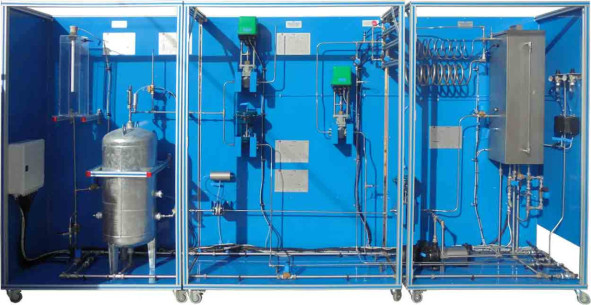FOR FURTHER INFORMATION, CONTACT US
10.3.- INDUSTRIAL APPLICATIONS AND SYSTEMS
An optimal operation of equipment and plants is essential in the process industry. Some devices are installed to achieve this purpose: sensors to measure the parameters to be regulated (controlled variables), actuators to allow modifying their values (manipulated variables), and controllers to define the value of the action. This set of devices is called control system.
View moreSome of the most common examples in the industry are the flow, level or temperature control systems of a fluid through pneumatic valves or solenoid valves, the pH control systems of a solution by means of dosing pumps or the systems to control the pressure and flow of a gas. However, in large industrial plants, these simple control loops do not occur in isolation, but as part of a more complex process that is controlled by a distributed control system or DCS. In these systems, simple control loops are locally regulated by industrial controllers and/or programmable logic controllers (PLCs) and monitored by a central supervisory and controlsystem (SCADA).
The improvements in productivity and efficiency of this automation are favoring the implementation of more complex control algorithms based on the traditional PID control, such as the cascade control, feedforward control, selective control, etc. In addition, other types of algorithms are being studied, such as the predictive control, adaptive control or fuzzy control. Another important trend in these systems is related to the industrial communications field. It lies in replacing the point-to-point connections of traditional 4-20mA current loops by digital point-to-multipoint networks based on protocols and standards such as Profibus, Modbus or Ethernet.
View Products Cookie preferences
Cookie preferences

